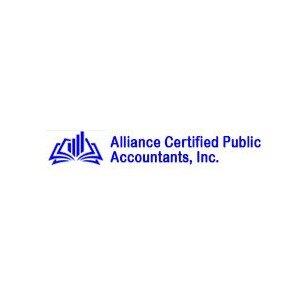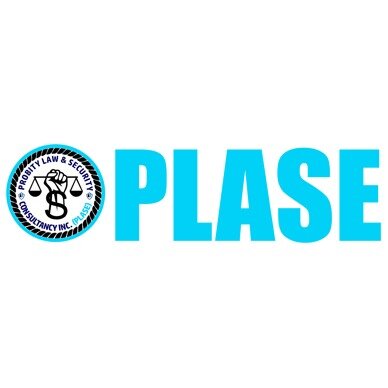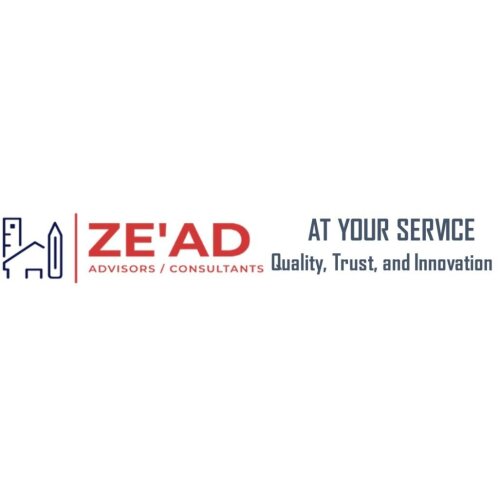Best Climate Change Law Lawyers in Liberia
Share your needs with us, get contacted by law firms.
Free. Takes 2 min.
Or refine your search by selecting a city:
List of the best lawyers in Liberia

Alliance Certified Public Accountants, Inc. (Alliance CPAs, Inc.)
15 minutes Free ConsultationAbout Climate Change Law in Liberia
Climate Change Law in Liberia is an emerging field aimed at addressing the impact of climate change on the country’s environment, society, and economy. As a member of the United Nations Framework Convention on Climate Change (UNFCCC), Liberia has been taking proactive steps to integrate climate change considerations into its legal framework. The country recognizes the consequences of climate change, such as rising sea levels, increased flooding, droughts, and loss of biodiversity, all of which significantly affect communities and ecosystems. Climate change law in Liberia encompasses international agreements, national legislation, policy measures, and enforcement mechanisms that help the nation adapt to, and mitigate, the effects of climate change.
Why You May Need a Lawyer
Seeking legal advice in the field of Climate Change Law can be crucial for individuals, businesses, or community groups involved in activities with environmental impacts. Some common situations where you may need a lawyer include:
- Understanding compliance requirements for businesses under climate-related regulations.
- Dealing with disputes over land use, especially in coastal or forested areas threatened by climate impacts.
- Advocating for communities facing relocation or loss of livelihoods due to climate change.
- Assisting in the application for permits or licenses involving environmental considerations.
- Navigating government funding or incentive programs for renewable energy or conservation efforts.
- Responding to regulatory enforcement actions or environmental fines.
- Participating in climate change adaptation or mitigation projects and understanding your legal obligations.
Lawyers can help you understand your rights, comply with local and international climate laws, and represent your interests before courts or regulatory bodies.
Local Laws Overview
The legal landscape for Climate Change Law in Liberia is shaped by both international commitments and domestic legislation. Key aspects include:
- National Climate Change Policy - Liberia has adopted a National Climate Change Policy and Response Strategy. This framework guides governmental and private sector actions in mitigation and adaptation.
- Nationally Determined Contributions (NDCs) - Liberia has submitted its NDCs under the Paris Agreement, committing to reduce greenhouse gas emissions and enhance resilience.
- Environmental Protection and Management Law - This law, enforced by the Environmental Protection Agency (EPA) of Liberia, includes provisions on environmental impact assessments, waste management, and conservation efforts to address climate change.
- Land Rights Act - Considerations about land tenure, use, and rights are fundamental, especially as climate change prompts new land management approaches.
- Forestry Reform Law - Forest conservation and sustainable management play a significant role in carbon sequestration and climate change mitigation.
- Disaster Risk Reduction Policies - Addressing flooding, coastal erosion, and extreme weather events, these laws and policies help guide adaptation efforts.
Liberia also collaborates with international donors and partners to structure climate financing, promote renewable energy, and build resilience among vulnerable populations.
Frequently Asked Questions
What is Climate Change Law?
Climate Change Law refers to the rules and policies that address the causes and effects of climate change, including emission reductions, adaptation strategies, and protection of affected communities.
Who enforces climate change regulations in Liberia?
The Environmental Protection Agency (EPA) of Liberia is the primary body for enforcing climate and environmental regulations, along with other government ministries and agencies.
Are there penalties for non-compliance with climate-related laws?
Yes, non-compliance can result in fines, suspension of licenses or permits, and, in severe cases, legal action or closure of operations.
How does climate change law affect landowners and farmers?
Landowners and farmers may be subject to new regulations on land use, forest conservation, and sustainable agricultural practices. They may also benefit from support programs for climate resilience.
What role do international agreements play in Liberian climate law?
International agreements like the Paris Agreement shape national laws, setting targets for emission reductions and adaptation actions that Liberia implements domestically.
Can communities bring claims for damages caused by climate change?
Communities may have legal standing to bring claims if they are adversely affected by actions that violate environmental laws or policies, but these cases can be complex and require legal expertise.
Is renewable energy regulated by climate change law in Liberia?
Yes, renewable energy projects are subject to environmental impact assessments and must comply with climate and environmental regulations.
How does Liberia address deforestation in its climate laws?
Liberia’s Forestry Reform Law and related policies aim to reduce deforestation, promote reforestation, and uphold sustainable forestry as part of its climate change strategy.
What kind of permits might be needed for climate-sensitive projects?
Depending on the project, permits may be required for land use changes, construction, agricultural activities, or resource extraction, all evaluated for environmental impact.
Where can I get legal help for climate change issues in Liberia?
You can consult private law firms, non-governmental organizations, or contact the EPA for guidance on finding appropriately qualified legal professionals.
Additional Resources
Several organizations and governmental bodies provide information, support, and legal guidance related to Climate Change Law in Liberia:
- Environmental Protection Agency (EPA) of Liberia - the main regulatory authority for climate and environmental issues.
- Ministry of Mines and Energy - involved in policy on renewable energy and resource management.
- Forestry Development Authority (FDA) - oversees the implementation of forestry laws and conservation projects.
- Law Reform Commission of Liberia - offers information on evolving laws and their application.
- Non-governmental organizations such as Green Advocates International and Conservation International Liberia, which work on community-based advocacy and legal support.
- UNFCCC focal point offices and related international development partners active in Liberia.
Next Steps
If you believe you need legal assistance regarding a climate change issue in Liberia, consider the following steps:
- Gather all relevant documentation relating to your issue, such as permits, correspondence, or legal notices.
- Consult the EPA, FDA, or another appropriate governmental body for initial guidance and information on compliance requirements.
- Seek out a qualified legal professional with experience in environmental or climate change law. Many lawyers offer consultations and can help you understand your rights and obligations.
- Contact non-governmental organizations that may provide free or low-cost legal advice for communities and individuals.
- Stay informed about ongoing policy changes, as climate change law in Liberia is a developing area and new regulations or incentives may become available.
Being proactive and seeking timely legal advice can greatly improve your ability to comply with the law, access government support, and protect your interests in matters related to climate change in Liberia.
Lawzana helps you find the best lawyers and law firms in Liberia through a curated and pre-screened list of qualified legal professionals. Our platform offers rankings and detailed profiles of attorneys and law firms, allowing you to compare based on practice areas, including Climate Change Law, experience, and client feedback.
Each profile includes a description of the firm's areas of practice, client reviews, team members and partners, year of establishment, spoken languages, office locations, contact information, social media presence, and any published articles or resources. Most firms on our platform speak English and are experienced in both local and international legal matters.
Get a quote from top-rated law firms in Liberia — quickly, securely, and without unnecessary hassle.
Disclaimer:
The information provided on this page is for general informational purposes only and does not constitute legal advice. While we strive to ensure the accuracy and relevance of the content, legal information may change over time, and interpretations of the law can vary. You should always consult with a qualified legal professional for advice specific to your situation.
We disclaim all liability for actions taken or not taken based on the content of this page. If you believe any information is incorrect or outdated, please contact us, and we will review and update it where appropriate.
Browse climate change law law firms by city in Liberia
Refine your search by selecting a city.











